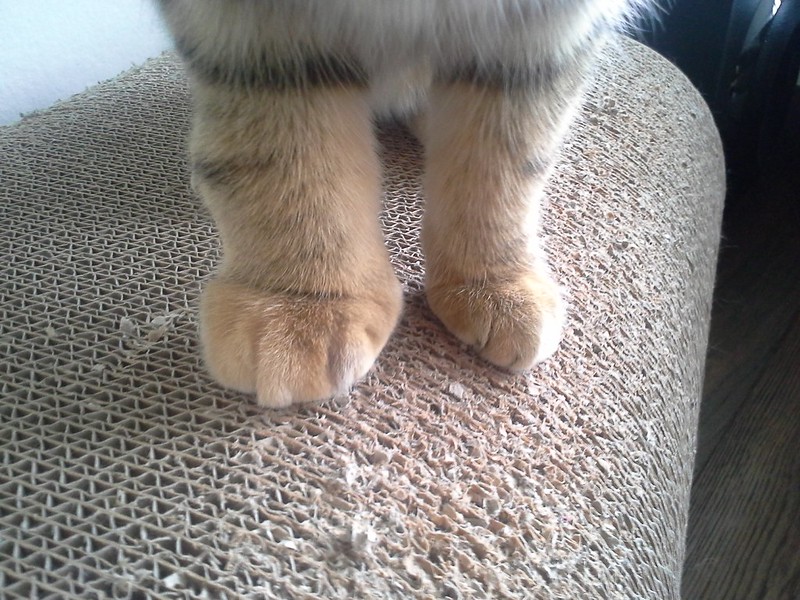Swollen Pad on Cat Paw? What Every Cat Parent Needs to Know
You know that adorable, slightly goofy way your cat pads around the house, their paws silently hitting the floor? Those little paws are surprisingly tough, taking them on all sorts of adventures. But sometimes, those adventures can lead to bumps in the road – or rather, bumps on the paw. If you’ve ever noticed a swollen pad on your cat’s paw, you know it can be alarming. What caused it? Is your furry friend in pain?
A swollen pad on a cat’s paw isn’t just about aesthetics; it’s often a sign that something is amiss and needs your attention. It could be something as simple as a minor injury that will heal on its own, or it could be a symptom of a larger health issue. Just like we pay attention to a cut on our own hand, noticing and addressing a swollen pad on your cat’s paw is crucial for their well-being.
This article will help you navigate the ins and outs of swollen paw pads in cats. We'll cover potential causes, symptoms to watch for, and when it's time to call the vet. Because even though we can't understand their meows exactly, we can learn to recognize when they're trying to tell us something's wrong.
It's important to remember that while this article offers helpful information, it's not a substitute for professional veterinary advice. If you’re ever unsure about your cat’s health, especially when it comes to their paws – those precious tools for play and exploration – it’s always best to err on the side of caution and consult your vet.
Ready to become an expert on your cat's paw health? Let’s dig in!
Possible Causes of Swollen Paw Pads in Cats
There are many reasons why a cat might develop a swollen paw pad, ranging from minor injuries to underlying medical conditions. Here are a few common culprits:
Injuries: Just like us, cats can experience cuts, burns, blisters, or punctures on their paw pads. These injuries can occur from stepping on sharp objects, hot surfaces, or even rough terrain.
Infections: If a cat's paw pad is cut or punctured, bacteria or fungi can enter the wound and cause an infection. This can lead to swelling, redness, and pain.
Allergies: Some cats are allergic to certain substances, such as pollen, dust mites, or even certain types of litter. Allergies can cause the paw pads to become itchy and inflamed, leading to swelling.
Parasites: Pesky parasites like fleas, ticks, and mites can irritate your cat's skin, including their paw pads. Bites from these critters can cause itching, inflammation, and swelling.
Underlying Health Conditions: In some cases, a swollen paw pad may be a symptom of a more serious health condition, such as an autoimmune disorder or a tumor.
When to Contact Your Veterinarian
If you notice your cat licking or biting at their paws excessively, or if you observe any of the following symptoms, it's crucial to contact your veterinarian:
- Severe swelling of the paw pad
- Bleeding or discharge from the paw pad
- Limping or difficulty walking
- Loss of appetite or lethargy
- Foul odor coming from the paw pad
Tips for Keeping Your Cat's Paws Healthy
While it's impossible to prevent all potential paw problems, there are some things you can do to help keep your cat's paws healthy:
- Regularly check your cat's paws: Make it a habit to look at your cat's paws regularly, checking for any cuts, sores, or swelling.
- Keep their environment safe: Make sure your home is free of sharp objects and potential hazards that could injure their paws. Be cautious with hot surfaces and chemicals as well.
- Maintain good hygiene: Regularly clean your cat's litter box to prevent bacterial or fungal growth that could lead to paw infections.
- Consider using hypoallergenic litter: If you suspect your cat may have allergies, switching to a hypoallergenic litter can help reduce paw irritation.
- Provide parasite prevention: Talk to your veterinarian about appropriate flea, tick, and mite prevention for your cat.
Caring for Your Feline Friend
Remember, your cat's paws are their connection to the world. By being attentive to their paw health and seeking veterinary care when needed, you can help ensure your feline friend stays happy, healthy, and ready for all their adventures.
Conquering the road your guide to auto wheel lug nut wrenches
Sourdough blues why wont my bread rise troubleshooting tips inside
Unlocking the rs3 your guide to buying a new one













